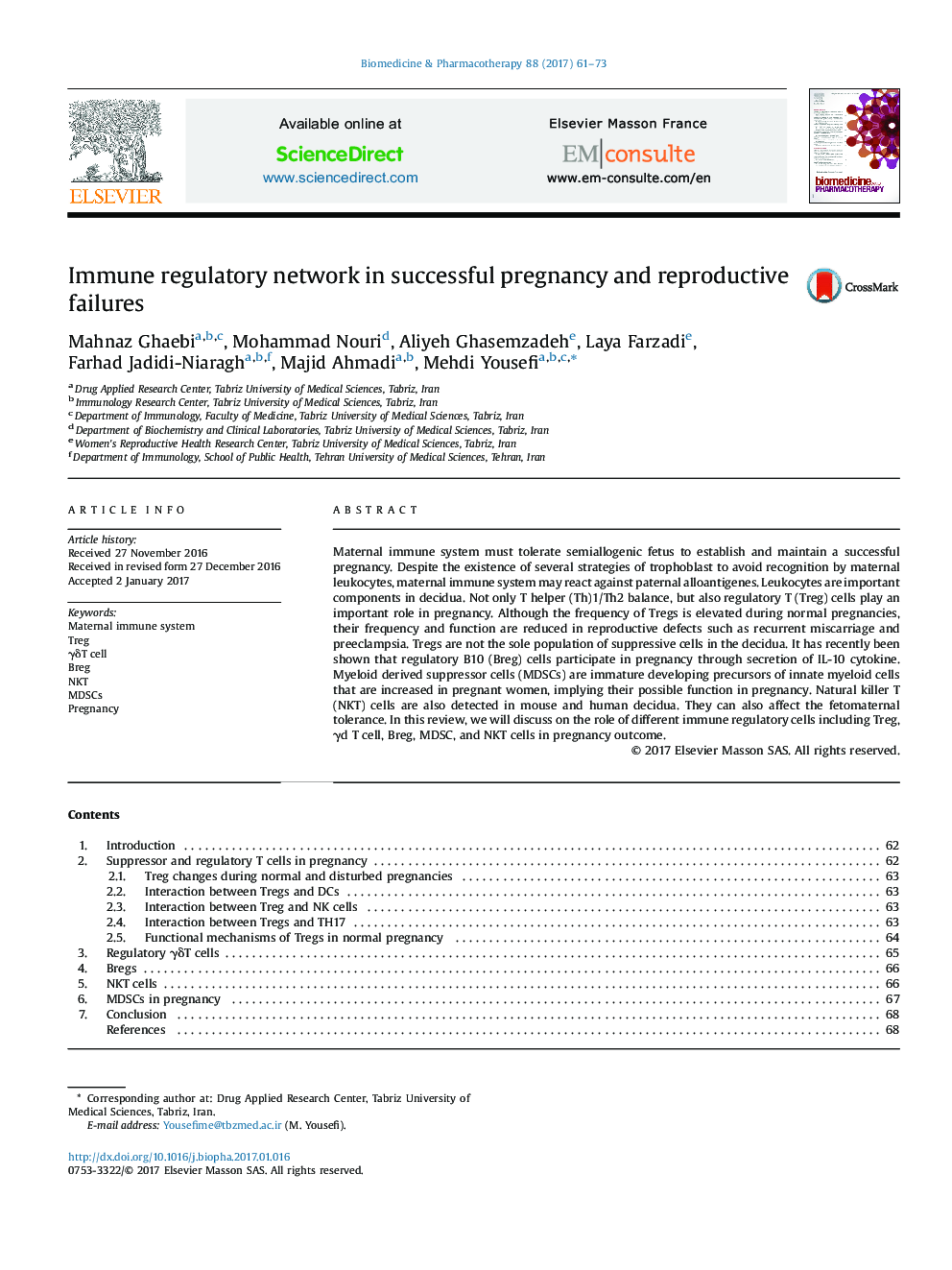| کد مقاله | کد نشریه | سال انتشار | مقاله انگلیسی | نسخه تمام متن |
|---|---|---|---|---|
| 5553103 | 1557954 | 2017 | 13 صفحه PDF | دانلود رایگان |
Maternal immune system must tolerate semiallogenic fetus to establish and maintain a successful pregnancy. Despite the existence of several strategies of trophoblast to avoid recognition by maternal leukocytes, maternal immune system may react against paternal alloantigenes. Leukocytes are important components in decidua. Not only T helper (Th)1/Th2 balance, but also regulatory T (Treg) cells play an important role in pregnancy. Although the frequency of Tregs is elevated during normal pregnancies, their frequency and function are reduced in reproductive defects such as recurrent miscarriage and preeclampsia. Tregs are not the sole population of suppressive cells in the decidua. It has recently been shown that regulatory B10 (Breg) cells participate in pregnancy through secretion of IL-10 cytokine. Myeloid derived suppressor cells (MDSCs) are immature developing precursors of innate myeloid cells that are increased in pregnant women, implying their possible function in pregnancy. Natural killer T (NKT) cells are also detected in mouse and human decidua. They can also affect the fetomaternal tolerance. In this review, we will discuss on the role of different immune regulatory cells including Treg, γd T cell, Breg, MDSC, and NKT cells in pregnancy outcome.
Journal: Biomedicine & Pharmacotherapy - Volume 88, April 2017, Pages 61-73
